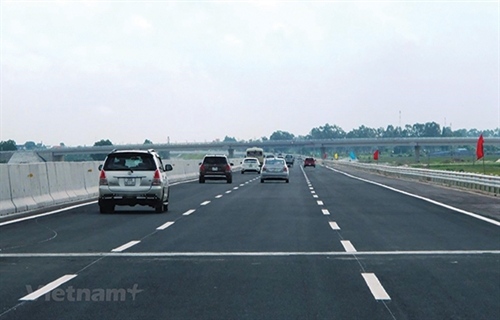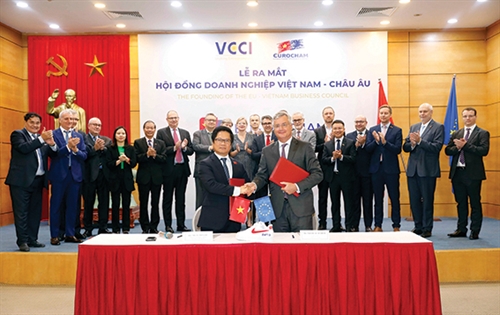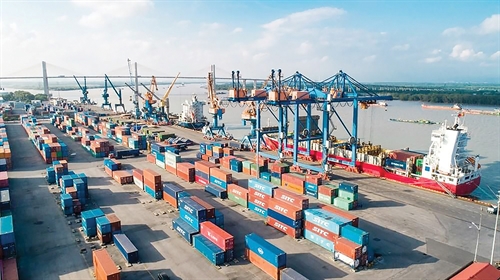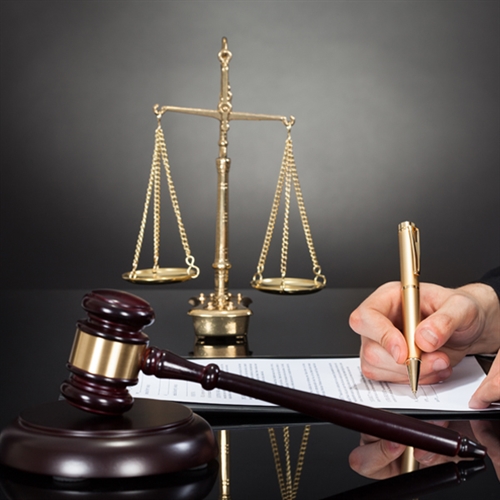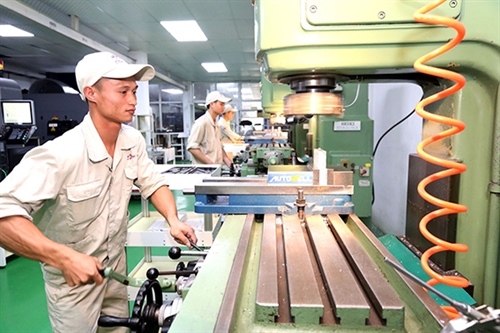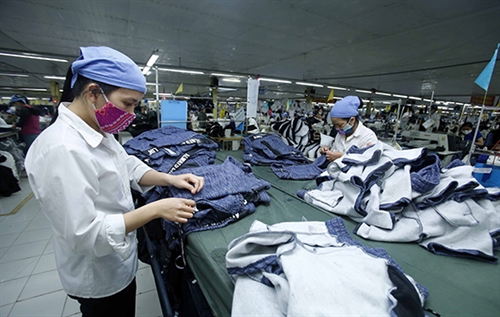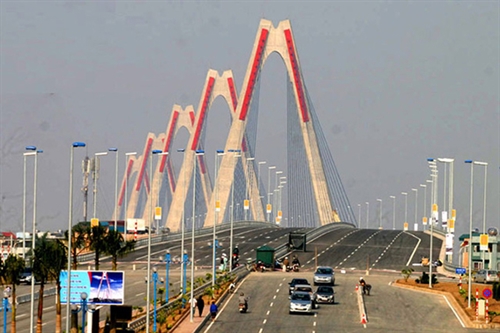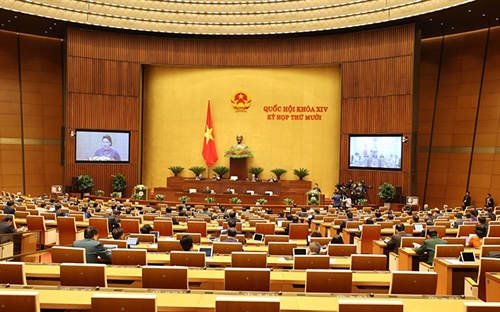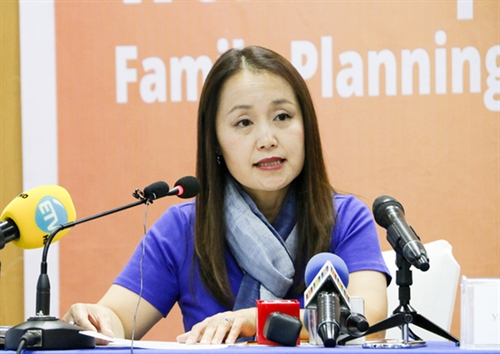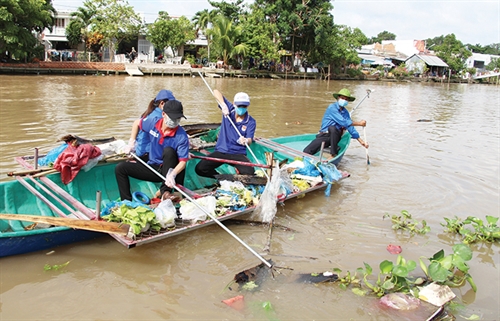The 13th National Party Congress was a success in many facets, from its content, form, organization, to working attitude, said Nguyen Phu Trong, who was reelected as General Secretary of the 13th Central Committee of the Communist Party of Vietnam, at a press briefing on February 1 following the congress’s closure.
He said after seven days of working efficiently and seriously and with a high sense of responsibility, the congress completed all agenda as planned.
The Party chief highlighted the efficiency of preparation work, especially regarding documents and personnel for the congress.
The drafting of a great deal of documents began in 2018, with 80 revisions and the gathering of opinions from all sectors and agencies, and for the first time the draft documents were made public for discussion among people from all walks of life. Meanwhile, personnel preparations were conducted in a careful, objective, and fair manner through different steps. Preparations for personnel work in connection with the Party Central Committee and other leadership agencies were made with opinions contributed by different agencies, thus reaching a high consensus at the congress, he said.
The Party leader said that at the congress, the delegates discussed in a candid and democratic manner and passed important documents with high consensus, including the Political Report, a report reviewing the implementation of the 2011-20 socio-economic development strategy and the building of the 2021-30 development strategy, a report on the implementation of socio-economic development tasks for 2016-20 and orientations and tasks for 2021-25, a report on Party building and the execution of the Party Statutes, and another assessing the leadership of the 12th Party Central Committee.
The congress elected a 200-member Party Central Committee, consisting of 180 official members and 20 alternate members, representing more than five million Party members nationwide.
The new Party Central Committee convened its first plenum and elected the Political Bureau composed of 18 members, the General Secretary, five members of the Secretariat, and the Inspection Commission comprising 19 members which is headed by Politburo member Tran Cam Tu.
| Members of the 13th Party Central Committee’s Political Bureau 1. Nguyen Phu Trong, Party General Secretary and President; 2. Prime Minister Nguyen Xuan Phuc; 3. Pham Minh Chinh, head of the Party Central Committee’s Organization Commission; 4. Vuong Dinh Hue, Secretary of the Hanoi Party Committee and head of the Hanoi delegation of 14th National Assembly deputies; 5. Truong Thi Mai, head of the Party Central Committee’s Mass Mobilization Commission; 6. Vo Van Thuong, head of the Party Central Committee’s Commission for Communication and Education; 7. Pham Binh Minh, Deputy Prime Minister and Foreign Minister; 8. Nguyen Van Nen, Secretary of the Ho Chi Minh City Party Committee; 9. To Lam, Minister of Public Security; 10. Phan Dinh Trac, head of the Party Central Committee’s Commission for Internal Affairs; 11. Tran Cam Tu, Chairman of the 12th Party Central Committee’s Inspection Commission; 12. Phan Van Giang, Chief of the General Staff of the Vietnam People’s Army and Deputy Minister of National Defense; 13. Nguyen Hoa Binh, Chief Justice of the Supreme People’s Court; 14. Tran Thanh Man, President of the Vietnam Fatherland Front’s Central Committee; 15. Nguyen Xuan Thang, Director of the Ho Chi Minh National Academy of Politics and Chairman of the Party Central Committee’s Theoretical Council; 16. Luong Cuong, Chairman of the General Department of Politics under the Vietnam People’s Army; 17. Tran Tuan Anh, Minister of Industry and Trade and deputy head of the Party Central Committee’s Economic Commission; 18. Dinh Tien Dung, Minister of Finance. |
Congress’s resolution passed
At the closing session, the congress adopted its resolution, aiming for the target that Vietnam will become a socialist-oriented developed country by the mid-21st century.
The resolution states that the congress agreed on the basic assessments of the implementation outcomes of the 12th National Party Congress’s resolution, the 1991 Platform on National Construction during the Transitional Period toward Socialism that was supplemented and developed in 2011, the 2011-20 socio-economic development strategy, the 1991 Platform, the 35 years of Doi moi (renewal) policy, along with national development orientations and tasks for the time ahead as noted in the documents submitted by the 12th Party Central Committee to the congress.
The resolution says during the 12th tenure, the entire Party, people and army stayed united and exerted efforts to successfully realize the set targets and tasks, gaining a number of highly important achievements.
The 10-year implementation of the 1991 Platform (supplemented and developed in 2011) and the 2011-20 socio-economic development strategy has created important progresses, affirming the great values of the Platform and that the Party’s Doi moi policy is sound and creative.
Worthy of note, during 35 years of carrying out the Doi moi policy and 30 years of implementing the 1991 Platform on National Construction during the Transitional Period toward Socialism, the people’s material and spiritual lives have been improved considerably, and the country has never obtained the fortune, strength, position, and prestige in the international arena like what it has today.
The abovementioned attainments have continued proving that the path to socialism in Vietnam matches the reality in the country and the development trend of the era, and that the Party’s clear-sighted leadership is the leading factor decisive to the success of Vietnam’s revolution.
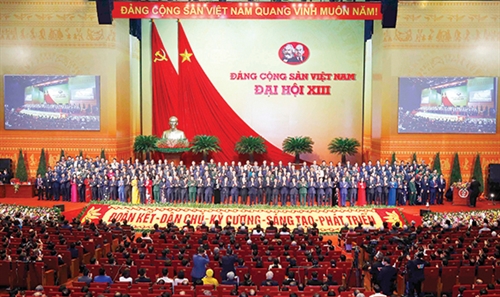 |
| The 13th Party Central Committee debuts on February 1__Photo: VNA |
Amid the rapidly and complicatedly changing international situation, the Party’s Platform remains “the flag of ideology, the flag of combat, the flag gathering the great national solidarity” for the goal of a rich people, a strong country, and an equitable, democratic, and civilized nation, according to the resolution.
However, the resolution notes, the building of institutions, change of the growth model, economic restructuring, industrialization, and modernization have not met expectations while the economy’s productivity, quality, efficiency, and competitiveness remain low.
Moreover, the socio-economic development hasn’t lived up to the country’s potential and advantages, and there remain many difficulties and challenges. Some targets in the 2011-20 socio-economic development strategy have been missed, and the creation of a foundation for basically turning Vietnam into a modernity-oriented industrial country has fallen short of expectations.
Regarding development vision and orientations, the resolution states that the global and domestic situation in the coming years requires the entire Party, people, and army to stay united and unanimous; keep reforming the mindset strongly; demonstrate a strong political resolve; make precise and timely forecasts of the situation’s changes; make proactive and timely response to any circumstances; exert more efforts to further comprehensively and concertedly promote the Doi moi process; unceasingly enhance the country’s strength in all aspects, firmly safeguard the Fatherland and the obtained development achievements; take the country forward firmly with rapid and sustainable development; and be determined to realize the following key viewpoints, targets, orientations, and tasks.
The guiding viewpoint is to stay persistent in and creatively apply and develop Marxism-Leninism and Ho Chi Minh’s Thought, while keeping steadfast with the goal of national independence and socialism, the Doi moi policy, and the Party building principles.
It is a necessity to ensure to the utmost the country’s and people’s interests on the basis of the fundamental principles of the United Nations Charter and international law; continue developing the country fast and sustainably, closely combine and concertedly carry out tasks; and strongly inspire patriotism, the will of national self-reliance, the strength of the great national solidarity, and the aspiration for national development. It is also required to bring into play socialist democracy; combine the strength of the nation with the strength of the era; uphold the will of independence and self-reliance in proactively and actively integrating into the world and improving the effectiveness of international cooperation; optimize international strength and make use of external resources; and intensify Party building and rectification work and boost the Party’s leadership and ruling capacity and combatant strength.
The overall goal is to promote the Party’s leadership and ruling capacity and combating capacity; build a clean and comprehensively strong Party and political system; consolidate and enhance the people’s trust in the Party, the State, and the socialist regime; comprehensively and concertedly promote the Doi moi cause, industrialization, and modernization; build and firmly safeguard the Fatherland, and maintain a peaceful and stable environment.
Targets toward 2045
The resolution sets some specific targets that by 2025, Vietnam will become a developing country with modernity-oriented industry and move up and out of the lower-middle income level; by 2030, when the Party marks its centenary, Vietnam will be a developing country with modern industry and upper-middle income; and by 2045, when the Democratic Republic of Vietnam, now the Socialist Republic of Vietnam, turns 100, the country will become a developed one with high income.
It also puts forward major targets on socio-economic development for 2021-25. Specifically, the average GDP growth rate in the period is projected at 6.5-7 percent per year, and GDP per capita will reach USD 4,700-5,000. The number of laborers working in the agriculture sector will account for about 25 percent of the total workforce, the proportion of trained workers will be 70 percent, the unemployment rate in urban areas will be curbed below 4 percent, and the multidimensional poverty rate will maintain a decrease rate of 1-1.5 percent a year. Health insurance is expected to cover 95 percent of the population, the life expectancy will reach 74.5 years, and the rate of communes meeting new-style countryside criteria will hit at least 80 percent.
Environmentally, by 2025, the rate of people having access to clean and hygienic water will reach 95-100 percent in urban areas, and 93-95 percent in rural areas, while all seriously polluting facilities will be dealt with, and the forest coverage will be kept stable at 42 percent.
Regarding national development orientations for 2021-30, the resolution requires further renewing the way of thinking, making and perfecting sustainable political, socio-economic, cultural and environmental development institutions in a synchronous manner; and tapping all potential and resources so as to create a new momentum for the country’s rapid and sustainable growth.
It is necessary to complete the socialist-oriented market economy institutions, ensure macroeconomic stability, and at the same time create breakthroughs in the fundamental and comprehensive reform of education and training, and develop high-quality human resources.
The resolution also outlines the goals of comprehensively developing human resources, building a progressive culture imbued with national identity, managing social development effectively and strictly, ensuring social and human security, and proactively adapting to climate change, giving the top priority to protecting the living environment and people’s health.
It emphasizes the importance of determinedly and resolutely safeguarding the country’s independence, sovereignty, unification, and territorial integrity; protecting the Party, State, people and socialist regime; maintaining political security, social order and safety, human security, economic security and cyber security; actively preventing the risk of wars and conflicts early and from afar; early detecting and promptly addressing unfavorable factors; and fighting to ruin all plots and activities of hostile forces.
Under the resolution, Vietnam will continue implementing the foreign policy of independence, self-reliance, and multilateralization and diversification; actively stepping up comprehensive and intensive international integration; maintaining a peaceful and stable environment; and continuously raising the country’s international position and prestige.
The country will promote socialist democracy, people’s right to mastery and role of self-governance, continue to build and perfect a transparent and strong law-ruled socialist state, improve transparency and accountability, and intensify the combat against corruption and waste, crimes and social evils.
It is also necessary to push ahead with the building and rectification of the Party, and reform the method and capacity of leadership of the Party.
Key missions in the 13th tenure
The resolution stresses key tasks for the new tenure that are to build a clean and strong Party and political system, as well as a socialist state ruled by law, renew methods of the Party’s leadership, and build a streamlined apparatus for the political system that operates in an effective fashion. It highlights the significance of the fight against corruption, waste, “group interests”, and manifestations of “self-evolution” and “self-transformation” within the Party.
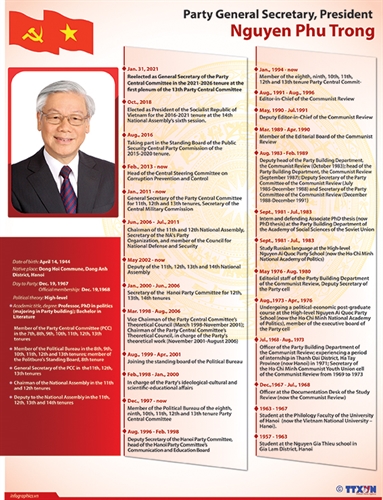 |
The resolution also underlines the task to contain the COVID-19 pandemic, provide mass inoculation while restoring socio-economic development, reforming the growth model, and promoting economic restructuring.
The country will strive to maintain its independence, continue to enhance the quality and effectiveness of external relations and international integration; build up defense-security strengths, resolutely protect its independence, sovereignty, unification, territorial integrity, and foster a peaceful and stable environment for development.
The country should intensify the management and effective and rational use of land and resources, and proactively deploy measures to respond to climate change and natural disasters.
Regarding strategic breakthroughs, the resolution underscores the necessity to complete synchronous institutions for development, first of all institutions for the socialist-oriented market economy.
The second is to develop human resources, especially high-quality workers; prioritize human resources for leadership and management positions and key sectors.
The third breakthrough is to build a comprehensive and modern infrastructure network in terms of economy, society, environment, national defense, and security, with priority given to the development of certain key national transport facilities; and adapt to climate change.
On behalf of the 13th Party Central Committee, Trong pledged to make all-out efforts to serve the nation and people, improve their capacity, knowledge, political mettle and morality, and follow the example of late
President Ho Chi Minh.
He urged all-level Party committees and organizations to focus on disseminating the outcomes of the congress, studying the resolution and documents adopted, and devising action programs and plans.
The Party chief also called upon the entire Party, people and army as well as Vietnamese at home and abroad to uphold patriotism, self-reliance and self-resiliency, and the strength of the great national unity bloc to successfully realize the congress’s resolution.- (VLLF)
